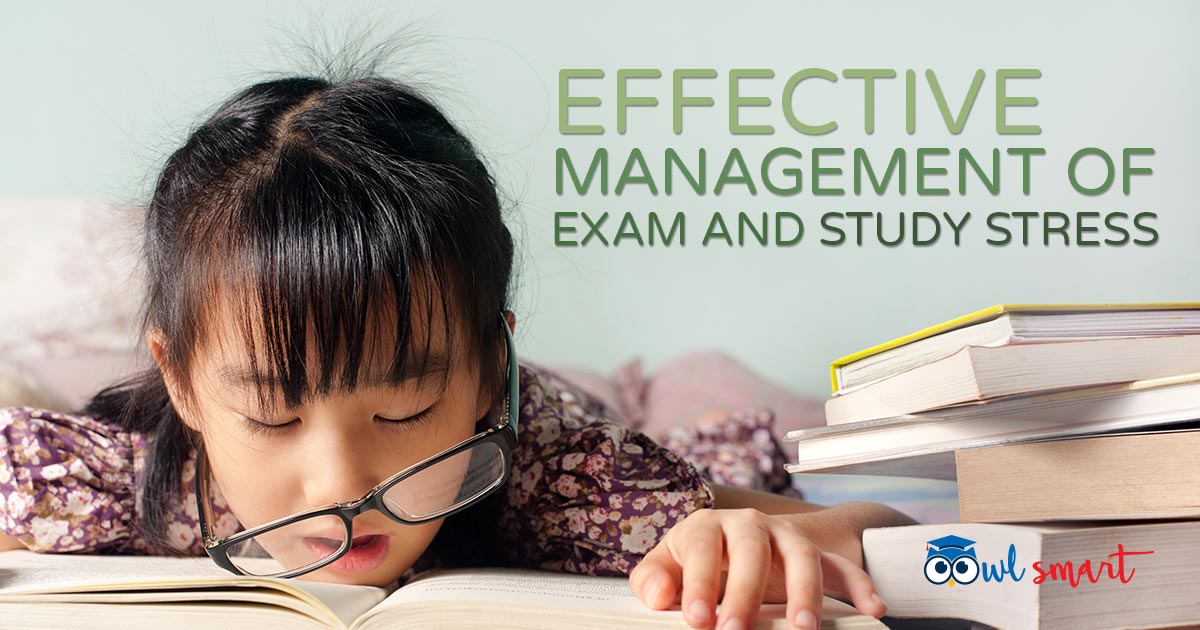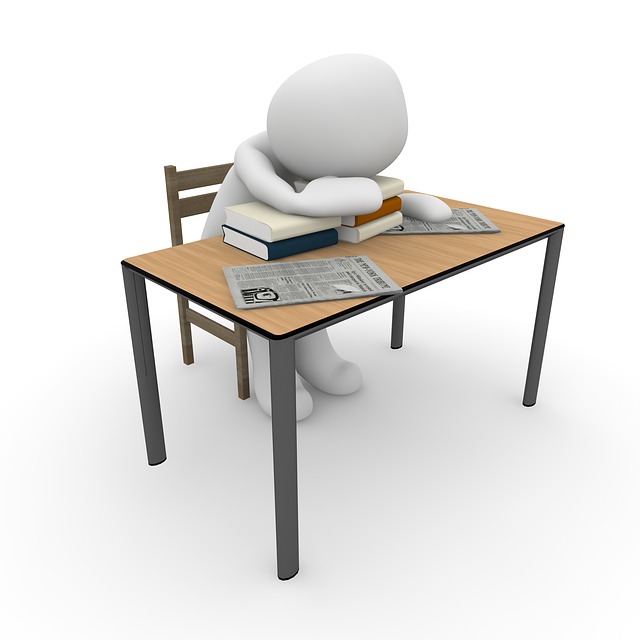
In Singapore, every student has to go through at least 10 years of formal education, from primary to secondary education (not including tertiary). Due to the increasing level of difficulties of the different subjects over the years, it is getting tougher and more stressful for each student of varying abilities to handle the demanding school work.
I remember as a P6 student around 30 years ago, PSLE was so much easier compared to nowadays whereby a student needs to have more thinking, analytical and application skills.
For the more “advanced” or well-supported students, coping with school work can be much more manageable compared to students who come from disadvantaged or less-supported families.
Stress becomes inevitable in a student’s lifestyle which intensifies when exams near.

While stress is part and parcel of life, being overly stressed or nervous can affect a student in a negative way, whether physically or emotionally.
As a teacher, I have seen so many times how students are affected by stress – loss in concentration or interest in studies, decreasing memory, blank-out during exam and even mild depression.
I hope that through the compiled tips in this article, you will find some effective ways to help your child manage stress better.
-
Tip 1: Balanced Diet
Let your child have a well-balanced diet. Avoid caffeine drinks before exam which can stimulate the heart rate.
-
Tip 2: Stay Hydrated
Drink or sip some water to wet the lips or mouth. When a person feels stressful or anxious, the mouth and lips tend to get very dry easily. Drinking some water can actually help to reduce anxiety or stress in tense situations.
-
Tip 3: Plan Your Revision Timetable
Plan your child’s study timetable well and spread out the study load over a comfortable period of duration. Do not cram all the revision within a short duration of time or do last minute revision.
-
Tip 4: Focus on Future
Remind your child not to dwell on past failures and look forward! Over focus on past failures can lead to stress build-up even before a student steps into the exam room.
-
Tip 5: Imagine Peaceful Environments

Imagine that you are in a peaceful and beautiful environment. For example, by the seaside with seagulls flying around. Think about what you see, feel, hear and touch to make yourself calm down.
-
Tip 6: Study Breaks
Do not over study. Reserve time for relaxation. I had tried studying for 17 hours a day during my university times continuously for a month and it definitely did not help in reducing the stress level that built up. Leave the house and get some fresh air.
-
Tip 7: Have Realistic Expectations
Be realistic with your expectations on your child. If your child can only absorb, do and achieve that much, do not lay on him/her a burden that he/she cannot manage.
Do not expect your child to score a “A” if he/she has been failing a particular subject. Assure your child that his/her self-worth or your love for him is not determined by exam results.
-
Tip 8: Have Enough Sleep
The importance of sleep can never be stressed enough. Please read the following article https://owlsmart.sg/article/health/sleep-dont-study for more details.
-
Tip 9: Take Deep Breaths
Breathe deeply. Since stress induces anxiety which affects breathing rate, breathing properly and deeply will calm nerves and alleviate exam anxiety.
-
Tip 10: Do Light Exercises
Do some light exercises like stretching and slow jog. Endorphin is released during exercises which certainly reduces stress level and feelings of anxiety.
-
Tip 11: Warm Bath
Taking a warm bath helps to relieve muscle tension and calm oneself down.
-
Tip 12: Share Feelings
Get your child to share about his/her feelings/ exam anxiety/stress with you more frequently so that you can monitor, advise and shower your child with more care and concern.
-
Tip 13: Massage

Give your child a massage on the stiff shoulders or hands to relieve the tension.
-
Tip 14: Meditation
Meditate on verses of your faith or pray together with a loved one. Entrust your worries or anxiety to your God.
-
Tip 15: Soothing Music
Listening to soothing music can help one to destress and relax. It can lower your heart rate and blood pressure.
-
Tip 16: Positive Self-Talk
Use Positive Self-talk to boost one’s self esteem and confidence. Do not dwell on your weakness or talk negatively about yourself. Think or talk it out loud “I can do it!”
-
Tip 17: Maintain Good Posture
Maintain a good posture and not hunch your back so that breathing can be deeper which in turn helps to calm down the heart. It is said that a good posture also helps in raising one’s self-image and confidence level.
Conclusion
No matter which phase of life one is in, whether as a student, working adult, parent, etc, stress cannot be avoided. We have to find ways to cope with stress effectively.
Though PSLE or exam results are very important, they are not the sole factor on whether one will have a successful future or not. What is important is one has tried his best and have the right attitude in whatever he does.
About the Author
Teacher Zen has over a decade of experience in teaching upper primary Math and Science in local schools. He has a post-graduate diploma in education from NIE and has a wealth of experience in marking PSLE Science and Math papers. When not teaching or working on OwlSmart, he enjoys watching soccer and supports Liverpool football team.



